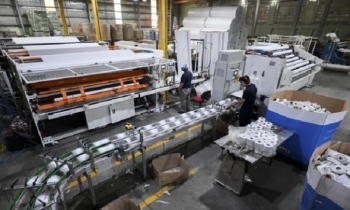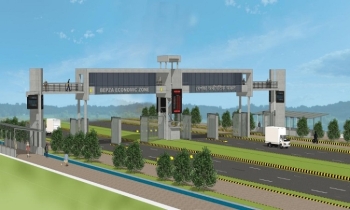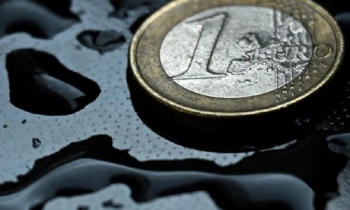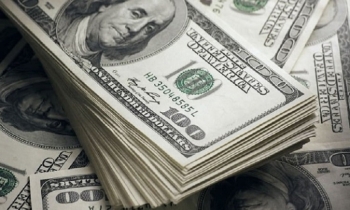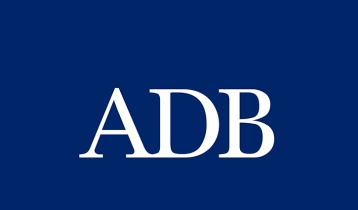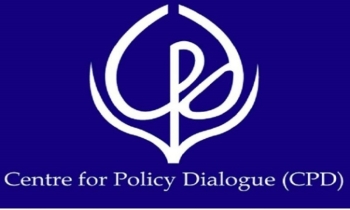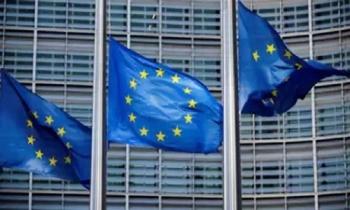Fuel prices to corner marginal to middle-class: Experts at CPD seminar
BI Report || BusinessInsider
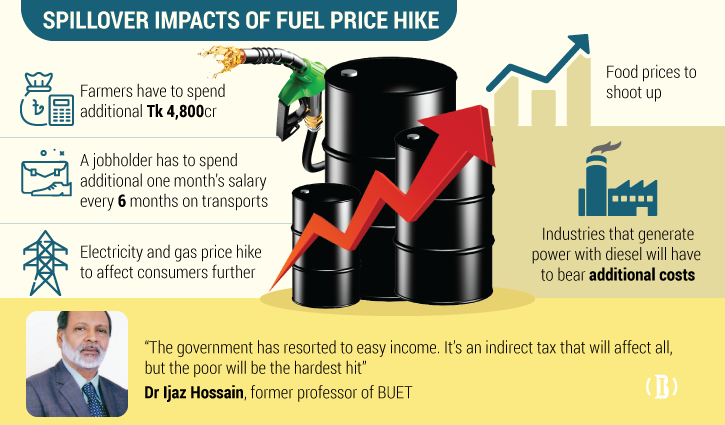
Graphics: Business Insider Bangladesh
The ‘unprecedented’ surge in fuel prices on Friday night has created further pain for ordinary people — from farmers to factory workers and even the middle-class — as the move will lead them to pay more for food, fertilizer, diesel and transportation at a time when they are struggling to manage their livelihoods.
The observations came at a discussion on “Could unprecedented fuel price hike be avoided now?” organised by the Centre for Policy Dialogue (CPD) at its office. A group of experts from different fields also expressed their opinions and the spillover impacts of the fuel price hike on the economy and consumers.
They also opined that the government could have avoided hiking the prices of fuel oil to such a level or done it in phases in a bid to relieve people from high inflation.
Dr Fahmida Khatun, executive director of CPD, made a brief presentation on the topic and moderated the discussion.
She said the government could have reduced the taxes on fuel oils instead of pushing up the prices to record levels.
She also questioned the BPC’s inefficiency and lack of accountability, which have an impact on the pricing of fuel.
“I don’t support subsidies as it is an inefficient economic tool and it benefits both the poor and rich. But it is not the right time to push up the prices to such levels,” said Dr Fahmida.
She also explained the reasons for this hike. “The government has no fiscal space. If the tax on fuel is cut, NBR’s revenue will go down. There is no space for manoeuvring.” As a result, the BPC and the government passed the costs on to the people, she added.
Dr Fahmida also said lack of institutional reforms and corruption have kept the tax-GDP ratio to only 9 percent, one of the lowest in the world.
Dr Ijaz Hossain, a former professor at the Bangladesh University of Engineering and Technology (BUET), said he was very surprised to see the way the government hiked fuel prices.
“The government has resorted to easy income. It’s an indirect tax that will affect all, but the poor will be the hardest hit,” he said.
Hossain who is known as an energy expert said he doesn’t support giving subsidies, but this is not the time to go for an ‘unprecedented’ price.
“The way the government has increased the prices indicates a shift from giving subsidies,” he said.
He also said that experts including him told the government many times to cut subsidies on oils, but people in power always opposed it.
He advised the government to follow the Indian model in setting fuel prices. He said India has around 40 percent tax on fuel imports and they cut the tax rate when it is needed.
Khondkar Golam Moazzem, research director of CPD, said BPC profited Tk 47,000 crore in the last seven years and asked where the money has gone.
CPD also made some recommendations for the government to decrease the fuel price hike.
They are:
— Government can increase the sale of essentials in open markets.
— Provide ration cards to the lower-income people.
— Controlling corruption, the government can ensure the best use of limited resources.

